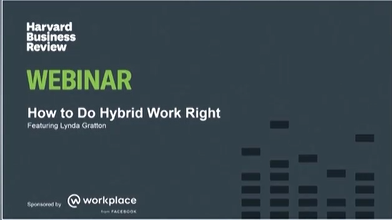How the cost of living crisis will savage tech
Individuals and businesses alike are feeling the pinch, with the skills market and digital transformation projects in flux

As inflation increases its stranglehold on economies across the world, the IT industry is set for major knock-on effects. The economic picture is, indeed, bleak. In March, the Bank of England hiked base interest rates from 0.5% to 0.75% in response to inflation projections of 7% – 8% in 2022, up from 5.5% in January. Although positive news for savers, it’s less good for creditors investing longer-term in cutting-edge technologies.
Ongoing supply chain issues, too, combined with the economic implications of the Russian assault on Ukraine, will combine in a devastating way to ramp up living costs. It means salaries are set to stretch far less, and even the most well-paid IT professionals may begin yearning for greener grass. Indeed, top tech talent will likely abandon ship in greater numbers, according to James Petter, general manager – international at Pure Storage, especially if salaries don’t rise.
Capital expenditure, as well as investments and risk, too, are set to tighten up. “We’ll see more businesses adopting ‘as a service (aaS)’ technologies,” Petter adds. “Tighter budgets demand smarter solutions, and many companies won't be looking for hugely expensive capital expenditure.”
Compounding existing challenges
There’ll be several knock-on effects on important products due to both inflation and the global geopolitical crisis, compounding previous challenges from COVID-19 to freight and shipping, according to operations and logistics partner at consultancy BearingPoint, Emile Naus.
Shipping costs, in some cases, have cancelled out the value of goods, with the Russia-Ukraine war adding further disruption. Ukraine and Russia are major food and energy exporters, and Ukraine is also a key supplier of cabling, steel, chemicals, and petroleum products.
“There weren't huge volumes that came that way, but it still matters, and then there's the sourcing of materials,” Naus says. “Lastly, there are those input costs on energy. Individuals' costs are going up, and businesses are already under a lot of pressure on cost.”
Semiconductor designs have already changed due to shortages. While semiconductor constraints could ease, alongside related prices for hardware upgrades, the benefits might be seen until at least the 2023/24 financial year, he adds.
ChannelPro Newsletter
Stay up to date with the latest Channel industry news and analysis with our twice-weekly newsletter
Higher costs will cap IT salaries, especially at the entry-level, yet businesses may seek to further accelerate digital transformation – continuing the scramble towards trends like hybridised remote monitoring and stronger IT management. Despite the prospect of deflated wages, IT professionals with especially in-demand skills may yet bargain successfully for pay increases, Naus suggests.
The evolving geopolitical situation, meanwhile, will hit global IT demand in the coming months and years, says Andrea Siviero, associate research director at IDC, adding more than half of businesses will reassess tech spending plans for 2022. Expenditure in Western Europe, though, may yet rise, partly due to expanded defence and security allocations.
Indeed, Soaring energy costs, as Jon Fielding, EMEA managing director at cyber security firm Apricorn, notes, will impact data centres from cloud to co-location. It���s pertinent, given alternatives to Russian oil and gas might be pricey and eat into budgets. “Long-term fixed-rate deals with major suppliers will come to an end soon,” he points out. “Data centres will be unable to absorb the entire increase. Last year, one facility more than doubled prices due to rising energy costs.”
On the production front, meanwhile, manufacturers will want to increase capacity, according to David Stone, chief executive of semiconductor industry recruitment firm MRL Consulting, although IT talent seeking to move to more affordable locations will threaten these plans. He adds delays to new products have pushed prices higher, too, even for second-hand IT. “Not only are prices skyrocketing, but lead times on vehicles, computers, laptops, games consoles and even medical technology have increased,” Stone explains.
What goes up might not come down
Distinguished analyst at Freeform Dynamics, Tony Lock, says the UK, post-Brexit, is potentially more exposed than other nations to the criticality of rising costs – fuel, especially. “The usual petrol company trick is pushing prices up fast, but taking them down exceptionally slowly,” says Lock. “The bigger you are, the better you can negotiate. Also, it's now more difficult to import components into the UK for exporting back out again.”
Everyone in IT is experiencing some supply chain exposure and should expect increased cost pressures on materials, resilience and sustainability, so it’s wiser to invest and spend now, if possible. With cost rises, too, comes industry consolidation, while choices and agility will be under pressure. “People will need to spend more on training, and, I suspect, on company culture,” he adds. “Additionally, the whole IT industry is set to change enormously, quite rapidly, and I wouldn't like to say in which direction.”
RELATED RESOURCE

How to do hybrid work right
Overcoming challenges in the transition to hybrid work
FREE DOWNLOAD
With pressure to retain staff also hugely exacerbated, Petter adds, organisations may be wise to be as flexible as possible, embrace hybrid working models and respond to employee pressure on environmental, social and governance (ESG). Industries will also need to spend more on cyber security and on areas like machine learning systems for stock forecasting, incorporating data on geopolitics, agriculture, and long-range forecasts. McKinsey, in fact, projects a “once-in-a-lifetime wave of capital spending” on physical assets between today and 2027 on critical infrastructures.
David Dudman, director of Apple value-added reseller (VAR), Jigsaw24, agrees on both counts – with a key pain point likely to be hiring, training and retaining staff while accelerating necessary IT-fuelled transformation. “A world of uncertainty is flowing through to organisations,” he says. “This war on talent is the challenge, with bills going up. That's where our investment and focus over the last three years has been – to compete with the big boys.”
Fleur Doidge is a journalist with more than twenty years of experience, mainly writing features and news for B2B technology or business magazines and websites. She writes on a shifting assortment of topics, including the IT reseller channel, manufacturing, datacentre, cloud computing and communications. You can follow Fleur on Twitter.
-
 Bigger salaries, more burnout: Is the CISO role in crisis?
Bigger salaries, more burnout: Is the CISO role in crisis?In-depth CISOs are more stressed than ever before – but why is this and what can be done?
By Kate O'Flaherty Published
-
 Cheap cyber crime kits can be bought on the dark web for less than $25
Cheap cyber crime kits can be bought on the dark web for less than $25News Research from NordVPN shows phishing kits are now widely available on the dark web and via messaging apps like Telegram, and are often selling for less than $25.
By Emma Woollacott Published
-
 Better together
Better togetherWhitepaper Achieve more with Windows 11 and Surface
By ITPro Published
-
 Transforming the enterprise
Transforming the enterpriseWhitepaper With Intel and CDW
By ITPro Published
-
 The top trends in money remittance
The top trends in money remittanceWhitepaper Tackling the key issues shaping the money remittance industry
By ITPro Published
-
 How Kantar revamped its IT infrastructure after being sold off
How Kantar revamped its IT infrastructure after being sold offCase Study Being acquired by a private equity firm meant Kantar couldn’t rely on its parent company’s infrastructure, and was forced to confront its technical shortcomings
By Rene Millman Published
-
 Deutsche Bank wraps up Postbank IT integration after bug-laden migrations
Deutsche Bank wraps up Postbank IT integration after bug-laden migrationsNews The IT merger is expected to generate annual savings of €300 million by 2025
By Daniel Todd Published
-
 Analyzing the economic benefits of Dell Technologies with VMware Tanzu & Intel
Analyzing the economic benefits of Dell Technologies with VMware Tanzu & IntelWhitepaper ESG economic validation
By ITPro Published
-
 Defra needs £726 million to modernize pervasive legacy IT issues
Defra needs £726 million to modernize pervasive legacy IT issuesNews A significant portion of IT systems are reportedly still in extended support or are fully unsupported
By Ross Kelly Published
-
 Former TSB CIO fined £81,000 for botched IT migration
Former TSB CIO fined £81,000 for botched IT migrationNews It’s the first penalty imposed on an individual involved in the infamous migration project
By Ross Kelly Published